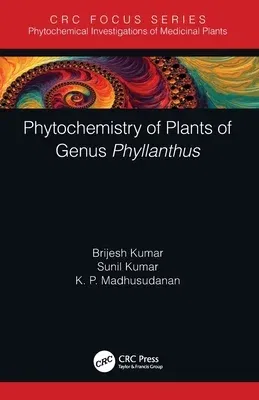Brijesh Kumar
(Author)Phytochemistry of Plants of Genus PhyllanthusPaperback, 1 February 2022

Qty
1
Turbo
Ships in 2 - 3 days
In Stock
Free Delivery
Cash on Delivery
15 Days
Free Returns
Secure Checkout

Part of Series
Phytochemical Investigations of Medicinal Plants
Print Length
14 pages
Language
English
Publisher
CRC Press
Date Published
1 Feb 2022
ISBN-10
036750054X
ISBN-13
9780367500542
Description
Product Details
Book Format:
Paperback
Country of Origin:
US
Date Published:
1 February 2022
Dimensions:
21.59 x
13.97 x
0.56 cm
ISBN-10:
036750054X
ISBN-13:
9780367500542
Language:
English
Location:
Oxford
Pages:
14
Publisher:
Weight:
131.54 gm